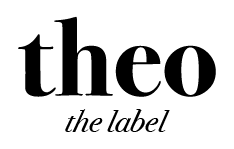What makes Theo ethical?
Let's understand how fashion can be unethical:
Ethical manufacturing is a non-negotiable for Theo, however, the small quantities that we wanted to produce made it difficult to approach factories in the beginning. Factories often demand MOQ's (minimum order quantities) to make the order worth their while and to successfully utilise assembly lines. MOQs are usually in the hundreds per size meaning we would likely have to produce 100 XS, 100 S, 100 M and so on, and that's the minimum amount we could order. Here at Theo we don't believe in making that many pieces because we want to keep things unique and well, special! I'm also working on another page outlining how incredibly unsustainable for the environment high quantities are, so keep an out for that!
To understand assembly lines let's talk about cupcakes. If you were to bake 4 dozen cupcakes in one go (multiplying the required ingredients by 4, using one large mixing bowl, popping them all in the oven at once), as opposed to baking 4 separate batches (measuring our ingredients four times, mixing the ingredients four times, waiting for them to cook four times!) we can begin to understand how assembly lines result in higher efficiency, higher productivity and therefore decreased time and decreased cost.
Unfortunately, it also results in decreased skill level. Keeping on with the cupcake analogy, this could mean instead of one chef handling the entire process from measuring through to placing in the oven, it means a different person is in charge of every single process. The repetition of performing that one process decreases time/cost even more, because well, if it was your job to measure a cup of flour for 8 hours a day, 7 days a week, you'd get pretty fast at it.

While assembly lines make sense and are essential for creating many products that would not otherwise be possible, it has also rapidly increased the speed at which we create things, and inherently the speed at which we consume things. More often than not, these are things that we do not need. Talk about a waste of money, time and resources! Lastly and perhaps most importantly, it has also taken away the skill, pride and beauty of the creation process.
So aside from our small order quantity issue, the negative impacts of assembly lines meant that we were looking for a different manufacturing option. Thankfully, we came to a simple solution - to omit factories completely and work directly with skilled makers. Makers (otherwise called home workers) in developing countries are often oppressed, fighting for payment at the very bottom of the supply chain and hidden from codes of conduct because they work from their own homes and have no bargaining power. Forget things like overtime payment, work cover or even realistic deadlines for completing the work - these workers are taken advantage of. Factories of all sizes are known to give work to home-workers without consulting clients because they don't want to lose business. The global economy has created an over-competitive marketplace making it easy for clients to jump to a different factory if they don't get the price/deadline they want.

In contrast, working face to face with makers creates an on-going relationship that preserves the old-school way of making clothing that values skill over mass production and means each piece has genuinely been created with care.
"Having face to face conversations regularly and committing to long-term relationships builds trust and transparency on a personal level."
We get a much more accurate idea of what 'fair pay and working conditions' means for each individual and family, because we're constantly having open conversations. There is an equal distribution of power between us as customers and them as business owners, because without makers we don't have garments and without our custom they don't have work. Our relationship also allows for flexible working arrangements where makers are able to work from home while caring for their children and can continue living in rural areas rather than moving away from their families and into big cities.

We work with independent makers in Bali, Indonesia. Underneath the surface of a bustling tourist industry where many Australians have their annual beach getaway, there are countless small garment factories that underpay and exploit workers just like larger factories do. Venture outside the usual tourist hot spots and you'll find systems of injustice and poverty like most developing countries, so we want to disrupt these limitations and provide a platform for makers to grow their skills and businesses for the benefit of their families and communities. As part of the Theo tribe, you have impacted the makers you're about to meet! To meet the maker of your garment check the "I Made Your Clothes' swing tag attached to your garment. Our maker's names are listed below and you can find out more about them by clicking through!
- Ghandi
- Riyadi

